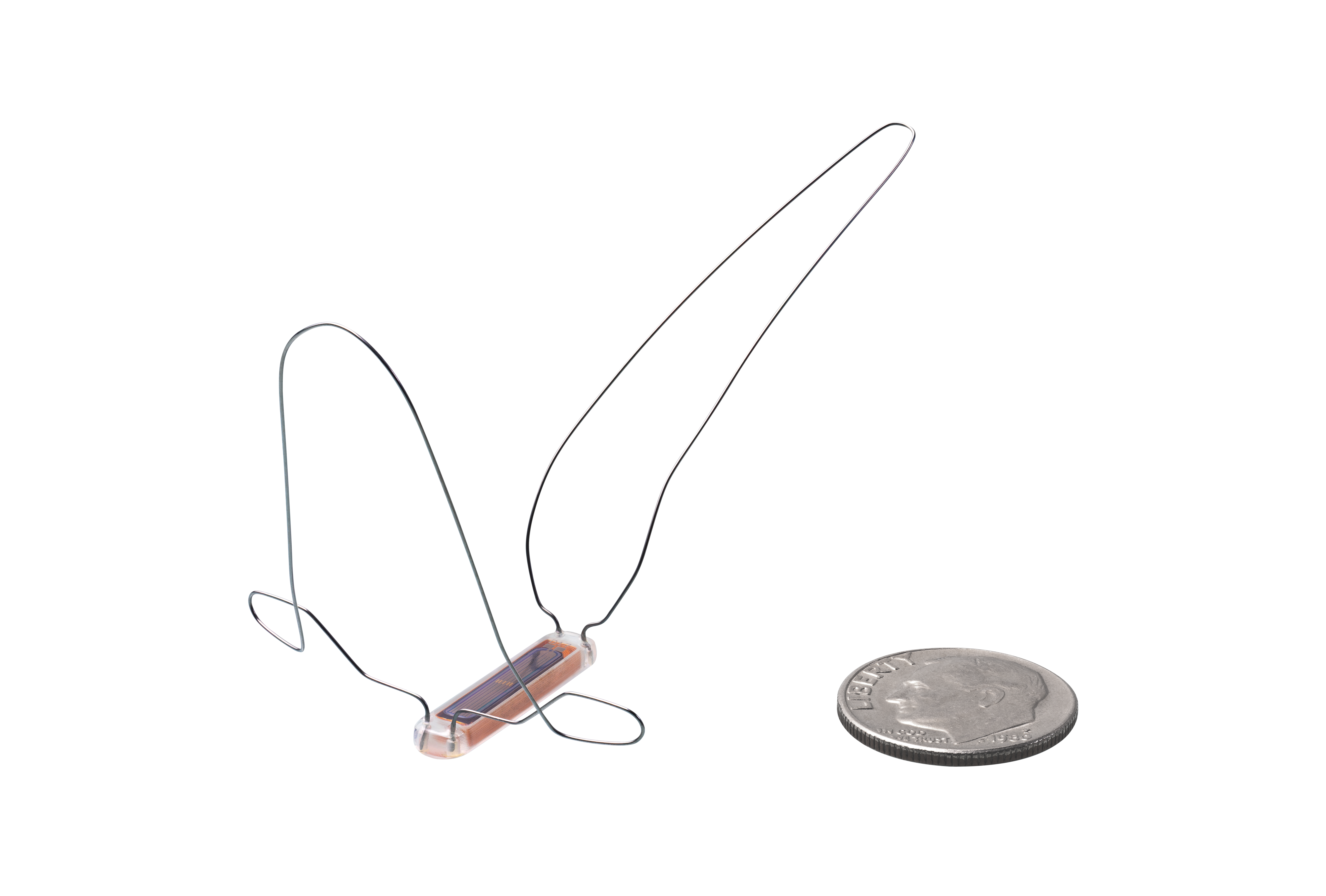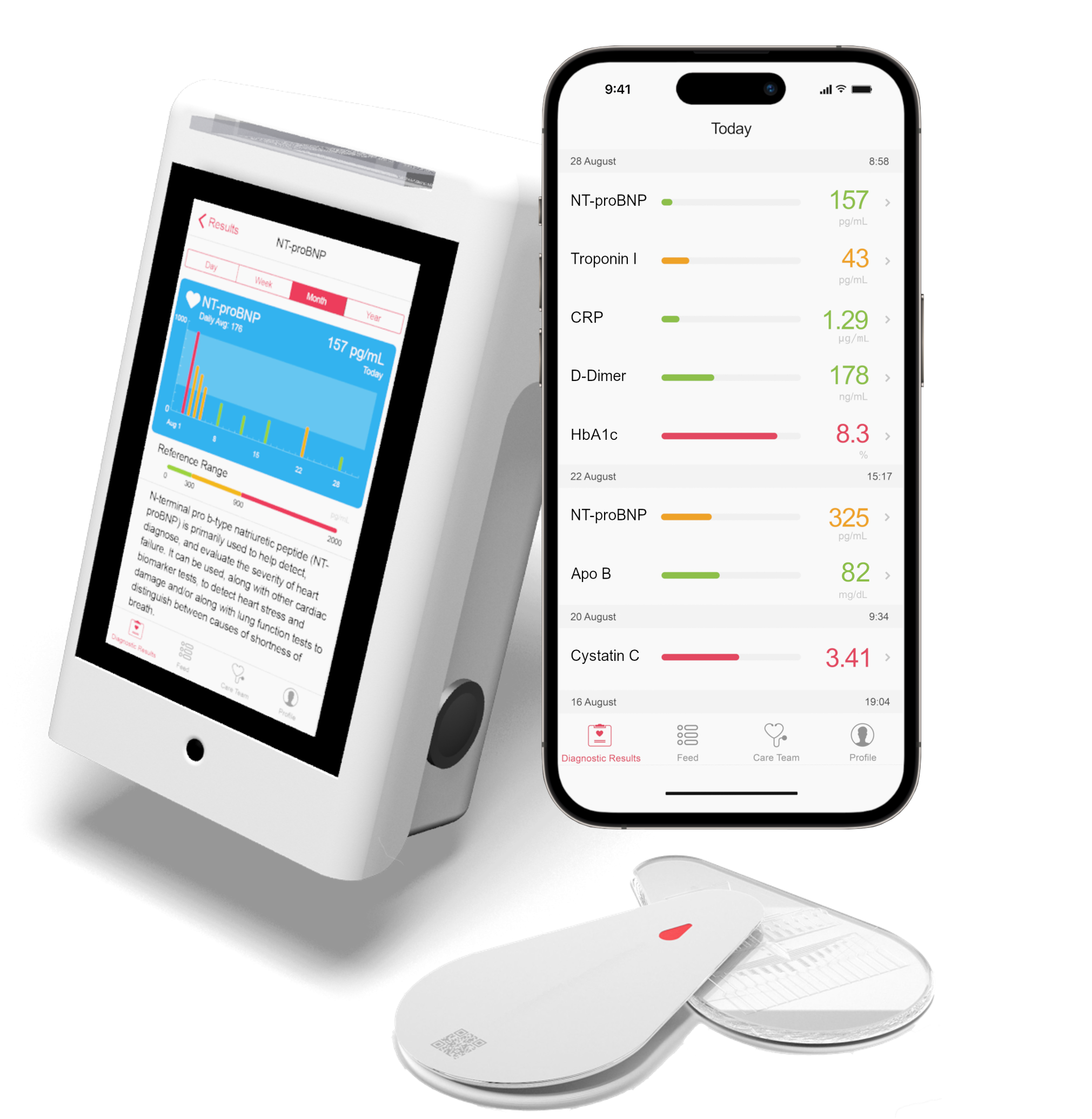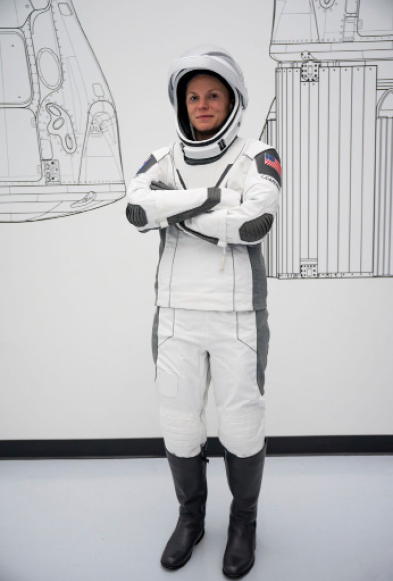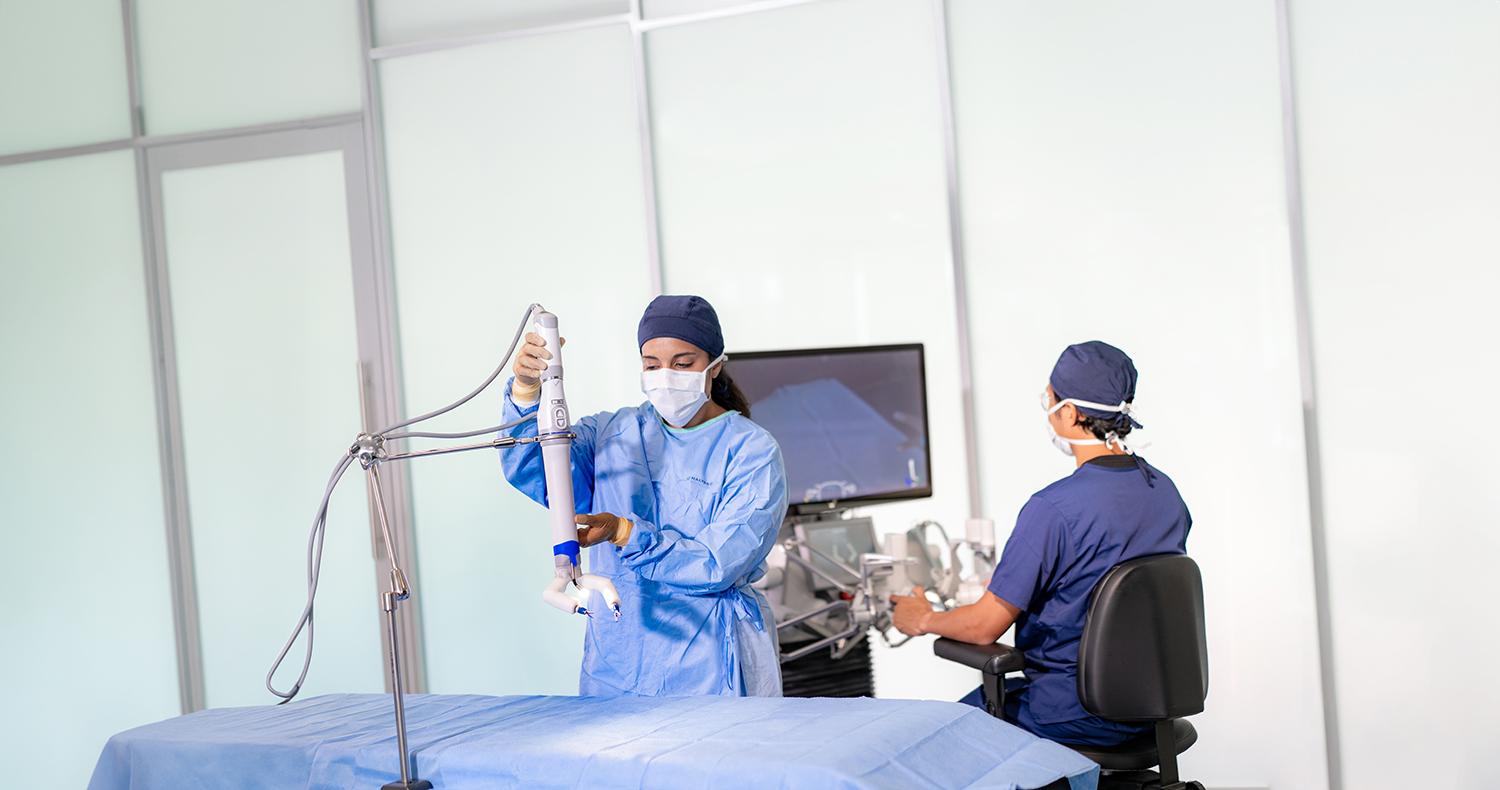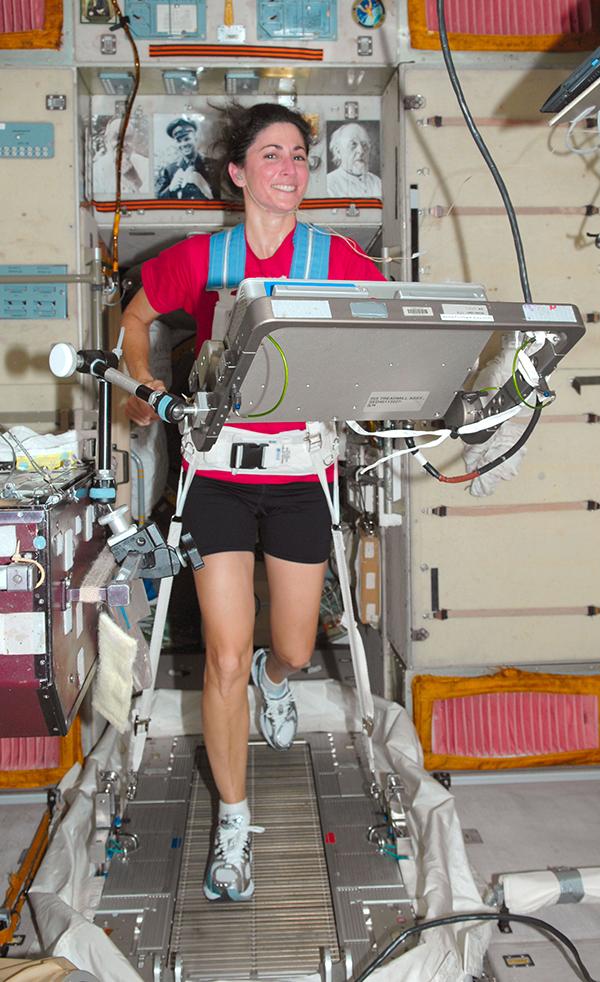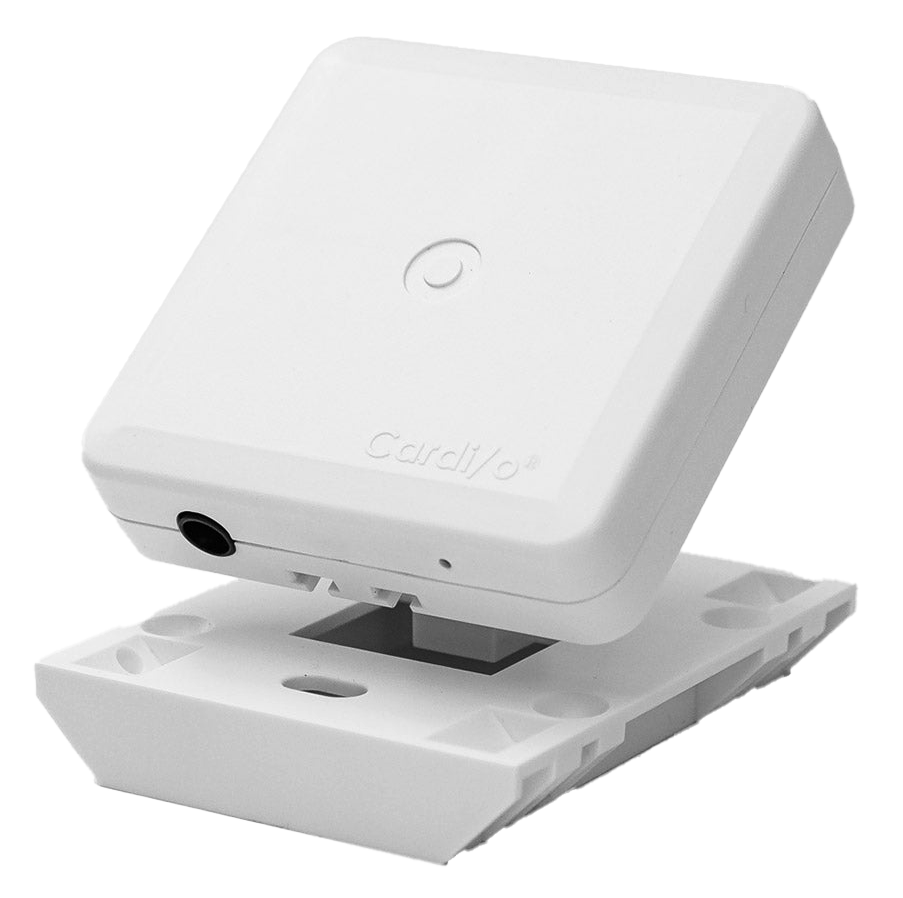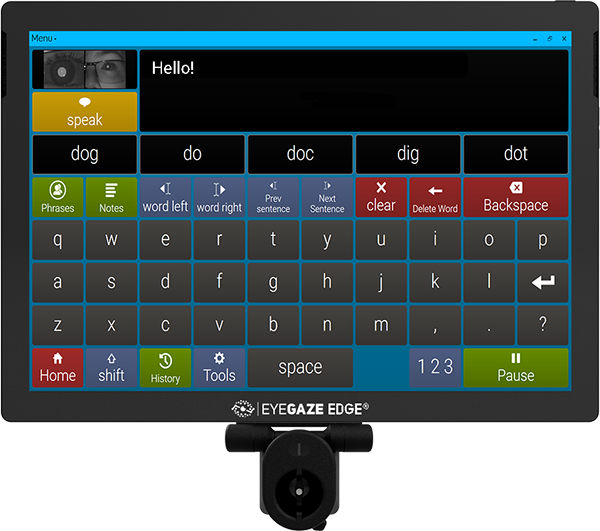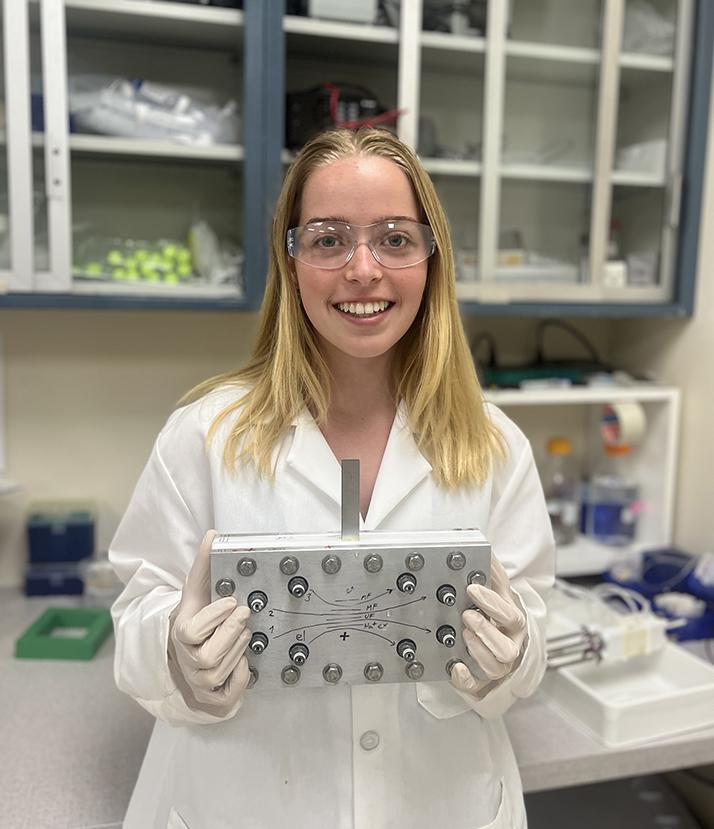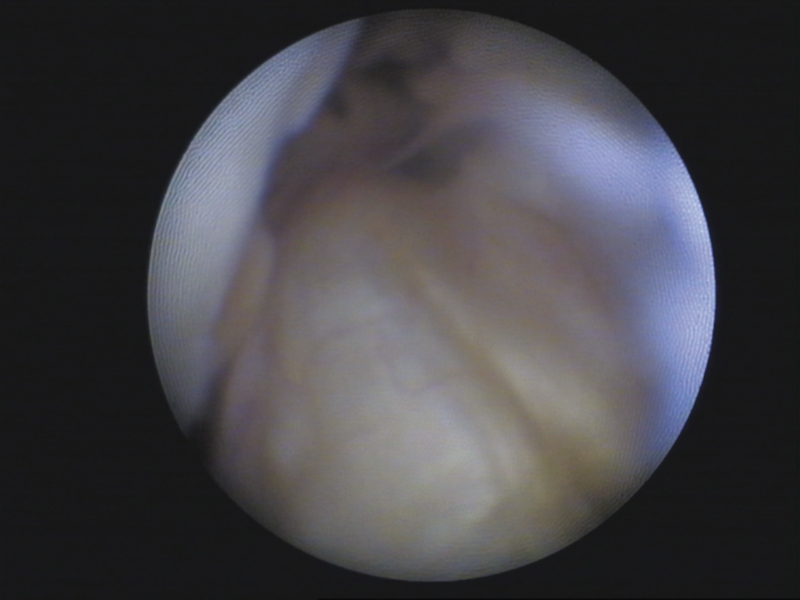
A Look From the Inside
Originating Technology/ NASA Contribution
NASA’s Hubble Space Telescope has given the world amazing images of the distant stars, planets, and galaxies. The cutting-edge imaging technology that enhances the Hubble images also extends its benefits to life here on Earth, from deciphering previously unreadable portions of the Dead Sea Scrolls to improving digital mammographies for advanced cancer detection. This imaging technology is now helping physicians to perform micro-invasive arthroscopic surgery, which is the visual examination of an interior joint such as the knee.
Partnership
In 1997, NASA’s Glenn Research Center signed a Space Act Agreement with Micro Medical Devices, Inc. (MMD), a medical device engineering company that licenses miniature surgical devices. Through the agreement, MMD gained access to NASA’s expertise and technology in order to bring its micro-technology-based systems to the medical community faster and less expensively than if the company completed the necessary research on its own.
At that time, MMD was in the process of developing a new micro-endoscope. This tool enables surgeons to view what is happening inside the body on a screen, eliminating the need for a more invasive diagnostic procedure. The images from the micro-endoscope needed to be extremely clear, a challenge with the tool’s small size. The images also needed to be viewed in real time to allow surgeons to see what was happening in the body at that very moment.
NASA supplied its expertise in image enhancement technology to perfect the images transmitted by the endoscope during surgery. Glenn’s Photovoltaic Branch and Graphics and Visualization team worked with MMD to enhance and speed up the tool’s graphic imaging. They applied algorithms to the endoscope system in order to remove the fiber patterns, lessen noise, sharpen the picture, and improve the color and illumination. As a result The InnerVue™ Diagnostic Scope System enables surgeons to view what is happening inside the body on a screen, eliminating the need for a more invasive diagnostic procedure. of their work, the NASA/MMD team won the NorTech Innovation Award, formerly known as the EDI Innovation Award, in 1999. The NorTech Innovation Award is part of Northeast Ohio’s leading award program to recognize the most creative products and concepts by successful individuals and organizations.
Product Outcome
MMD established Clear Image Technology, LLC, of Elyria, Ohio, to commercialize the miniature endoscope. Clear Image Technology then partnered with Arthrotek, Inc., a sports medicine subsidiary of Biomet, Inc., to introduce the tool to the commercial market as the InnerVue™ Diagnostic Scope System.
The InnerVue system is designed for use in a diagnostic environment, such as an office or outpatient service, to evaluate conditions within a joint. While the InnerVue scope is primarily being applied to the knee and shoulder, other small joints such as the wrist, elbow, and ankle are being investigated. A physician can use the system alone or in conjunction with magnetic resonance imaging (MRI) to determine the next treatment step for each patient. The procedure can be more accurate than MRI, particularly with diagnosing cartilage and articular surface damage and assessing arthritis severity.
Components of the system include an endoscope, system hardware and software, and instrumentation. The scope’s outside diameter is 1.2 millimeters (approximately the size of an 18-gauge needle). Since this micro-invasive scope only requires local anesthetic and allows the patient to be alert during the procedure, he or she cannot only see the pathology but can also aid the surgeon with dynamic events such as contracting a muscle.
One of the major benefits of the InnerVue system is its ability to provide an immediate diagnosis. Since the patient does not need to go offsite for testing, the InnerVue system puts a dynamic and active diagnostic test in the hands of the physician. The patient receives only one needle poke and may walk out of the office immediately after the procedure. Arthroscopy is well known as the diagnostic gold standard. The InnerVue system allows the surgeon to utilize this gold standard in a more efficient, less invasive, and timesaving approach.
InnerVue™ is a trademark of Arthrotek, Inc.
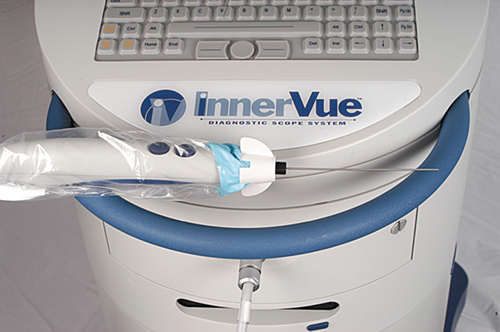
The InnerVue™ Diagnostic Scope System evaluates conditions within the knee or shoulder in a diagnostic environment such as a doctor’s office.
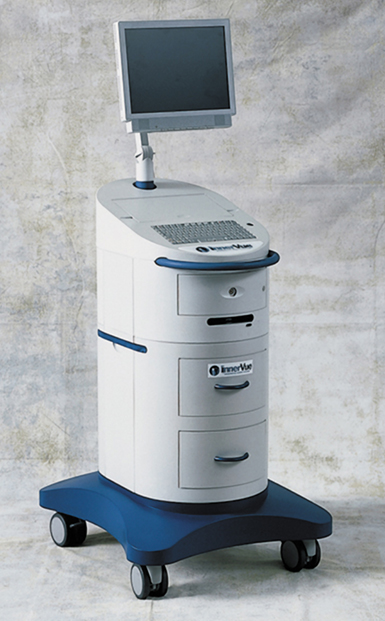
The InnerVue™ Diagnostic Scope System enables surgeons to view what is happening inside the body on a screen, eliminating the need for a more invasive diagnostic procedure.

The InnerVue™ system provided this view of an Anterior Cruciate Ligament inside of a knee.




